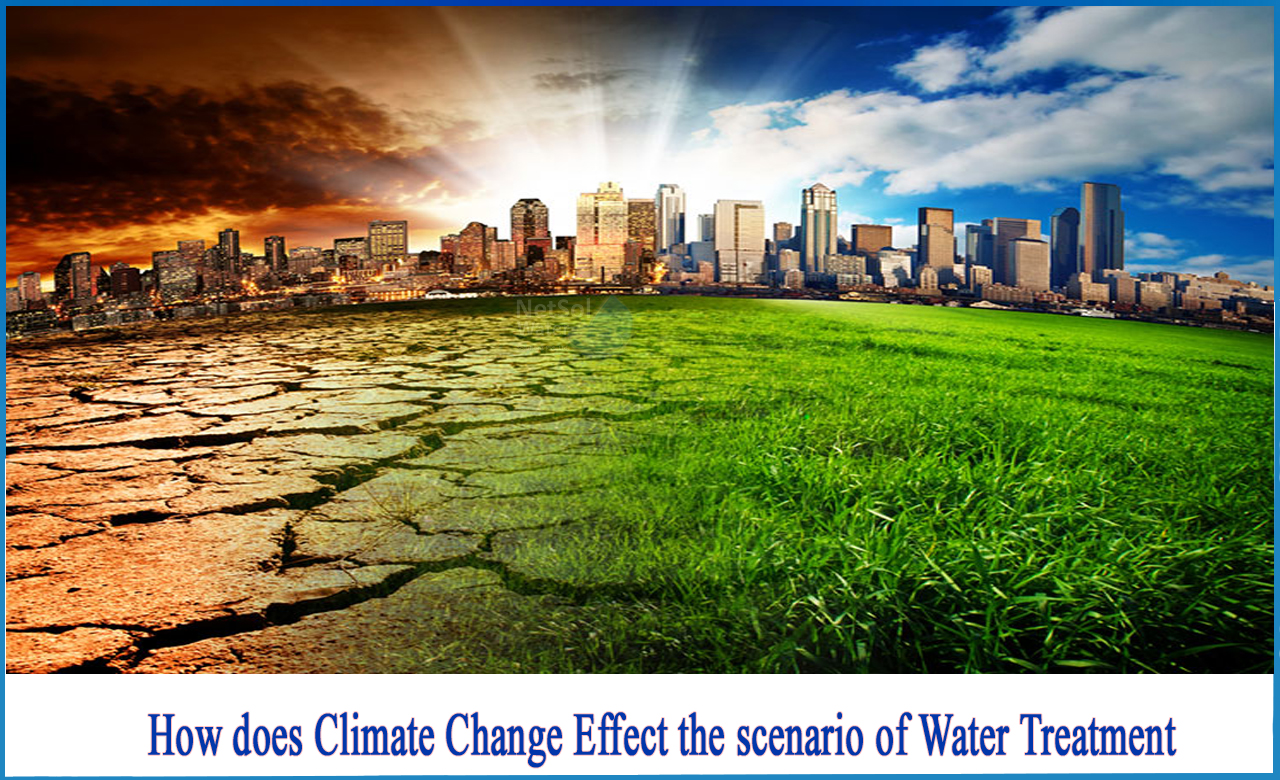How does Climate change effect the scenario of water treatment?
Water consumption is increasing globally as a result of economic development, urbanization, and population growth. The unpredictability of future situations, most notably climate change, forces society to plan and pay for mitigation activities ahead of time. Adapting to climate change is becoming crucial for managing the performance and location of wastewater systems, which implies that understanding the science and local knowledge are critical for adaptation strategies.
Climate change has been acknowledged as having a substantial impact on human-built infrastructure by increasing uncertainty in future air temperature, precipitation, wind speed, and sea level rise. As a result, climate change may have an impact on both existing and proposed urban water systems.
Global warming and climate change are having an ever-increasing impact on the planet.
In fact, within the next 30 years, global temperatures are anticipated to rise by 2 to 5 degrees Celsius. Climate change has a variety of effects on the wastewater industry. If the wastewater treatment plant (WWTP) is connected to storm water collection systems, for example, larger levels of germs could be transferred there. Increased rainfall can also increase the amount of sewage fed into the collection system. These two sorts of incidents might result in operational demands that exceed the treatment plant's capacity, compromising reliability and increasing operating costs.
Some of the water treatment challenges faced due to climate change and global warming are discussed in this article;
1. Water Supplies are flooded
As sea levels rise, water treatment plants near major bodies of water risk having their equipment overwhelmed by rising sea levels.
Inundation of water treatment facilities could result in the depletion of water treatment infrastructure and polluting of clean, treated water reservoirs. Furthermore, the warmer water entering the current water supply may have an influence on the fragile ecosystems that exist in those bodies of water.
2. Impacts on wastewater collection and treatment systems
Higher overflows, blockages, and breaks are recognized as the most important effects of increased rainfall on wastewater conveyance systems. Inflow and infiltration (I&I) into wastewater networks are predicted to grow as rainfall intensity and extreme events rise.
3. Climate change's impact on wastewater pump stations
Pumping volume needs for pump stations may be increased as a result of increased inflow and infiltration due to higher rainfall intensity and raised groundwater tables. Pump stations may experience greater wear as a result of these situations.
4. Increased temperature extremes have an impact on treatment processes
The greatest impact on WWTP and processes owing to higher temperature extremes is noted as performance fluctuating with temperature and increased smells. Warmer temperatures may cause increased wastewater strength and changes in WWTP performance, which are likely to enhance odour or affect WWTP process inputs or effluent properties.
5. Current water infrastructure is under stress
The current water treatment system is being strained by global warming and climate change. Rising sea levels will necessitate the relocation of treatment plants to higher altitudes in order to avoid infrastructure inundation. Hurricanes, floods, and other catastrophes will need the development of more adaptable and resilient infrastructure.
Because of the melting of snowpacks, there will be fewer water resources accessible for treatment and consumption. All of these events will raise the cost of water treatment and put strain on existing infrastructure.
How can Netsol Water help?
Expert knowledge is always at your fingertips at Netsol. You can use our platform to try the services of specialists and be worry-free in the comfort of your own home.
Let us know your problem, our experts will make sure that it goes away.
For further assistance or product-purchase related query,
Call us on +91-9650608473;
Or, write us at enquiry@netsolwater.com



